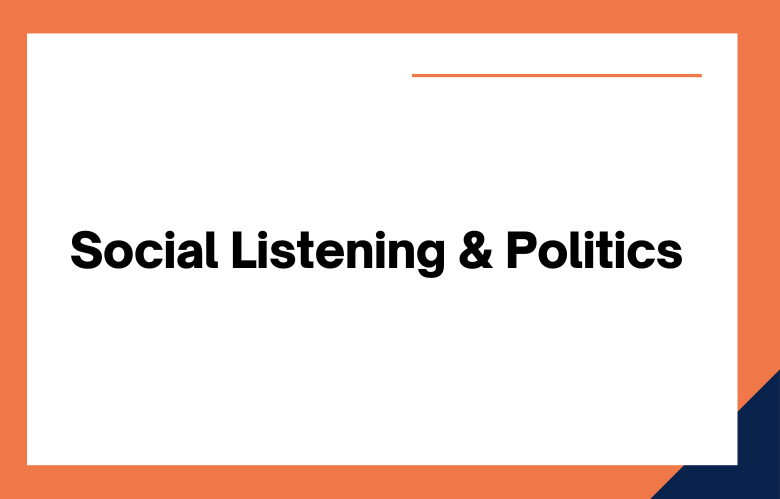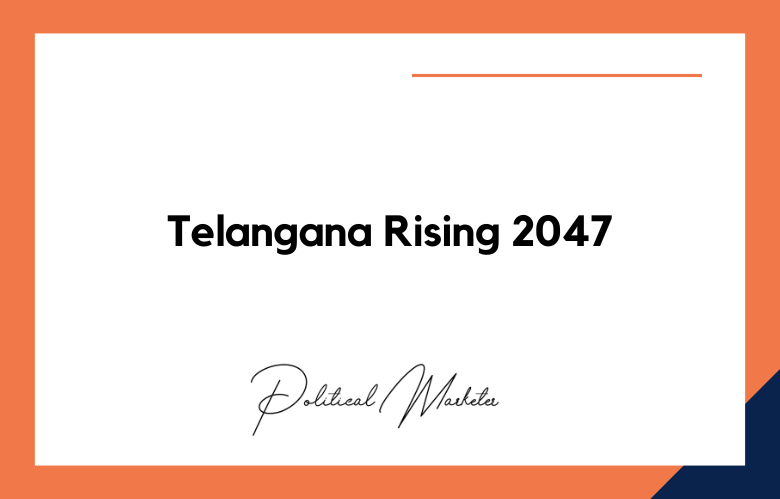No matter who you support during this year’s election, it’s crucial to understand how social media affects the voting process. We’ll explore how to use social listening to evaluate your political marketing campaign and ensure you’re reaching the right people with the right message.
Stay ahead of the competition by understanding how social media changes the game!
It’s no secret that to be successful in politics; you must have a good marketing campaign. But many people don’t realize that social listening can help you evaluate your marketing campaign and make necessary adjustments.
We’ll discuss using social listening to evaluate your political marketing campaign.
We’ll also provide tips on improving your campaign based on the findings from social listening data. Are you ready to learn more?
Are you curious about how well your political marketing campaign is doing? Wonder if there are ways to improve. Social listening can help.
We will outline how to use social listening to evaluate your political marketing campaign, where to find helpful tools and resources, and tips.
By the end of the post, be ready to put social listening into practice and ensure your political marketing campaign is running smoothly!
What is social listening? How does it work out?
Social listening is monitoring online conversations to understand better what people say about your brand.
You must set up keyword searches across all major social media platforms to do social listening. It allows you to see every instance of your brand.
You can then use this information to improve your marketing strategy, product offerings, and overall customer experience.
- Social listening is monitoring social media platforms for mentions of your brand, products, or industry.
- Doing this lets you gain valuable insights into how people feel about your brand and what areas to improve.
- Social listening allows you to take the pulse of the internet and get real-time feedback on how your business is doing.
- Social listening is essential to stay ahead of the competition and ensuring your customers are happy.
Social listening is monitoring social media platforms for mentions of your brand, product, or industry. You can gain valuable insights into what people say about your business by tracking these online conversations.
The benefits of social listening are vast. By tracking online conversations, you can:
- Get real-time feedback about your products or services
- Identify potential issues early on
- Discover new marketing opportunities
- Build stronger relationships with customers and influencers
The benefits of social listening for political marketing
- Gain insights into what the public is saying about your candidate or party on social media
- Identify critical influencers who are talking about your candidate or party on social media
- Understand how sentiment toward your candidate or party is changing over time
- Track which topics are being talked about the most about your candidate or party
- Analyze how different demographics are talking about your candidate or party on social media
- Compare the performance of your campaign against that of your opponents
- Understand the concerns of your target audience
- Monitor your competition’s messaging
- Identify potential advocates and ambassadors
- Respond to negative sentiment quickly and effectively
- Identify critical influencers
- Keep up with current events
- Generate leads and grow your fan base
- Create content that resonates with your audience
- Measure the effectiveness of your campaigns
How to build a social listening strategy for your political campaign
Politicians must be aware of what voters say about them on social media. A social listening strategy can help a campaign team track this conversation and act accordingly.
Here are some tips on how to set up social listening for your political campaign:
Monitoring mentions: You can use tools like Google Alerts or Mention to track your candidate’s online discussion. You can identify and respond to any given arising from these conversations.
Finding influencers: Watch for social media users who influence potential voters. These could be thought leaders or just regular users with a large following. By engaging with these users, you can help spread the word.
There’s no one-size-fits-all to this question, as your political campaign’s best social listening strategy will vary on your specific goals and audience. However, there are some general plans you can follow to get started.
Defining what you want to achieve with your social listening strategy is essential. Are you looking to learn more about the care of voters? Track negative sentiment around your opponent. Get a pulse on Ticketmaster hot topics in real time.
Once you know your goals, you can start setting up keyword searches on social media platforms like Twitter, Facebook, and Instagram. For example, if you’re interested in tracking the negative sentiment around your opponent, you might search for phrases.
The first step in setting up a social listening strategy for your political campaign is finding the right software. Many platforms are available, so it’s essential to research and finds one that fits your needs.
Once the software gets set up, you must start listening to what people say online about your campaign. It includes monitoring social media channels, news outlets, and blogs.
By listening to what people say, you can gain valuable insights into how your campaign is perceived and what issues are most important to voters. The information adjusts your strategy and messaging accordingly.
Tips for interpreting the data from social media monitoring
- Look at the sentiment of the posts- are people generally happy or unhappy with your brand?
- What words are people using to describe your brand? Positive or negative adjectives?
- Are people talking about you in a positive or negative light?
- Which social media platforms are people talking about you on most?
- What time of day do most people talk about you online?
- Are there any patterns in the people talking about you online (location, age, gender, etc.)?
- What kind of content is getting the most engagement (likes, shares, comments)
- Keep an open mind when reviewing the data
- Look for patterns in the data
- Trust your gut instinct when reviewing the data
- To improve your marketing efforts, use the data
- Don’t rely on the data to make decisions that could harm your business
- Establish your goals for social media monitoring
- Interpret the data correctly
- Keep track of your progress
- Please keep track of your brand’s tone of voice and ensure all social media posts reflect it.
- Use social media monitoring to determine what people say about your brand, products, and services.
- Analyze the data to see what is working and what needs improvement
- Use the data to create targeted marketing campaigns
- Respond to comments and complaints quickly and politely
- Monitor your competition’s social media activity
- Use social media monitoring to get a better understanding of your customers.
- Monitor your brand’s name and see how it’s talked about online
- Identify any potential crises and address them quickly
- Keep an eye on your competition and see what strategies they’re using that are working well
- Analyze the demographics of your followers to understand better who you’re reaching
- Use social media monitoring to track the success of your marketing campaigns
- Get insights into customer sentiment towards your brand or products
- Track mentions of keywords related to your industry or niche
- Understand the different social media platforms and how to use them
- Use social media monitoring tools to track conversations about your brand
- Analyze the data to see what people are saying about your brand
- Look for trends in the data
- Identify opportunities and problems that you can address
- Take action based on the findings from the data
- Look at the sentiment of the posts- are people generally positive or negative about your brand?
- Analyze how often people are talking about you- if there’s a sudden spike or drop, what could have caused it?
- Check which channels talk about you the most- this can help you determine where your target audience is online.
- See which topics people discuss your brand- this can give you ideas for new content marketing campaigns.
- Identify critical influencers talking about you and see what kind of reach they have.
- Compare your social media data to that of your competitors to see how you’re
- Look at the sentiment of your posts- are people generally happy or unhappy with your brand?
- What words are people using to describe your brand? Positive or negative words?
- What topics are people discussing when they mention your brand? Are they positive or negative?
- Which social media platforms are people talking about you on most often?
- Who is most talking about you (positive or negative)?
- Are there any patterns in the data that you can identify?
- Keep track of your brand’s tone of voice on social media
- Use sentiment analysis to understand how people feel about your brand
- Monitor competitor activity and analyze their strategies
- Track top keywords and hashtags related to your industry
- Analyze user demographics to see who is interacting with your brand online
- Look for influencers in your industry and collaborate with them
- Use social listening to find customer feedback and complaints.
Conclusion
Social listening can help your campaign in several ways, including evaluating how well your message resonates with voters, identifying your supporters, and determining which issues matter most to voters.
If you want help incorporating social listening into your political marketing strategy.
Contact us to learn more about our Political Marketing Consulting services and how we can help get your campaign off the ground.
One way to get in touch is by filling out our online form on this site or give us a call at
+91 9848321284. Let’s work together today!
How to use Social Listening in Your Political Marketing Campaign: FAQs
What Is Social Listening?
Social listening is the practice of monitoring online conversations across social media, blogs, forums, and news outlets to understand what people are saying about your campaign, issues, or opponents.
How Does Social Listening Differ From Social Monitoring?
While both involve tracking online mentions, social listening digs deeper into sentiment, trends, and context to reveal actionable insights.
Why Is Social Listening Important For Political Campaigns?
It provides real-time feedback on public sentiment, identifies emerging issues, uncovers influencers, and helps manage reputation proactively.
What Benefits Does Social Listening Offer In Elections?
Campaigns can detect shifts in sentiment, measure topic volume, compare performance with opponents, and identify advocates and detractors.
Which Platforms Should Be Monitored?
Track major platforms like Twitter, Facebook, Instagram, blogs, forums, and relevant news outlets for a broad understanding of voter conversations.
What Tools Are Available For Social Listening?
Tools such as Google Alerts, Mention, Hootsuite, Sprout Social, and Buffer help campaigns automate tracking and analysis.
How Should Keywords Be Defined For Listening?
Set up keyword streams for candidate names, policy terms, slogans, hashtags, opponents, and city or region identifiers to sample comprehensive insights.
What Metrics Should Campaigns Monitor?
Essential metrics include sentiment scores, mention volume, share of voice, key demographic patterns, and engagement rates.
How Can Social Listening Detect Crises?
By spotting sudden spikes in negative mentions or trending topics, campaigns can rapidly identify issues and respond before escalation.
What Is The Role Of Influencer Identification?
Social listening helps pinpoint influential voices, whether high-profile or grassroots, whom campaigns can engage for broader reach.
How Should Sentiment Trends Be Interpreted?
Track sentiment over time to understand the evolution of public opinion, campaign impact, and seasonal or issue-specific highs or lows.
Can Social Listening Guide Issue Messaging?
Yes, insights from listener data help campaigns shape messaging, choose priorities, and address voter concerns effectively.
How Do Campaigns Compare Themselves To Opponents?
Share-of-voice analysis, sentiment comparison, keyword overlap, and topical dominance help benchmark against rivals.
How Can Social Listening Improve Voter Engagement?
By analyzing active topics and tone, campaigns can create more resonant content, respond personally, and tailor outreach.
Is Geographic Segmentation Possible In Listening?
Yes, campaigns can analyze data by region or locality to understand localized sentiment and target precise outreach.
Should All Online Mentions Be Treated Alike?
No, context matters. Intent, tone, source credibility, and platform influence should shape campaign responses and priorities.
How Frequently Should Listening Data Be Reviewed?
Daily or even real-time monitoring is recommended, especially during high-impact events or when sentiment shifts rapidly.
How Can Campaign Teams Act On Listening Insights?
Teams can tweak messaging, engage influencers, address concerns proactively, shift resources by region or topic, and manage crises.
What Ethical Considerations Are There?
Privacy, transparency, and respectful dialogue must be ensured. Campaigns should avoid manipulative or invasive practices.
How Does Social Listening Fit Into Campaign Analytics?
It complements polling and face-to-face feedback with rich qualitative data, linking directly to messaging strategy and response efforts.











